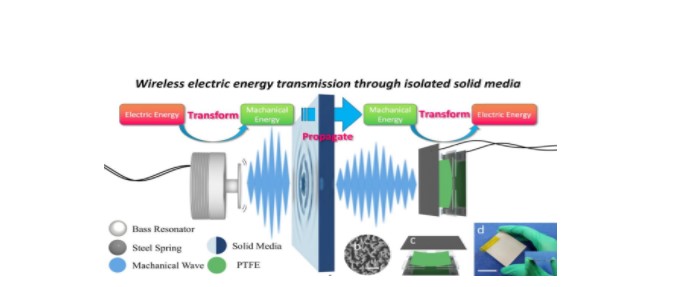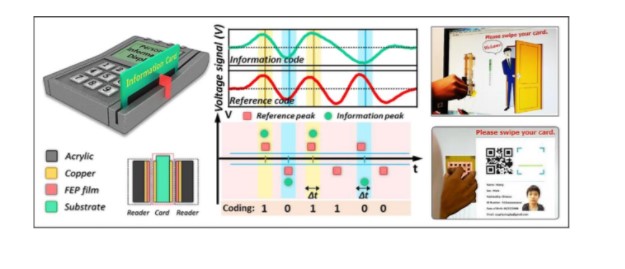In recent days, the research group led by Professor Hu Chenguo of the School of Physics, CQU, proposed a wireless power transmission method based on the nano friction power generation technology that is able to penetrate the solid isolation. This method uses the low-frequency resonator as the front-end transducer to convert electric energy into single-frequency mechanical energy. Then the friction nano generator is used as the rear-end transducer to convert the mechanical energy received into electric energy, thus supplying power to rear-end electronic equipment. This method allows for the conversion of “electric energy – mechanical energy – electric energy”. In particular, the mechanical wave, as the intermediate energy transfer carrier, is different from the electromagnetic wave (limited by the electromagnetic shielding effect, the electromagnetic wave is unable to penetrate metallic media), and is able to propagate in almost all solid materials including metals. The related research findings have been published on Advanced Energy Materials, a key journal in the material science area. The paper is titled “Wireless Electric Energy Transmission through Various Isolated Solid Media d on Triboelectric Nanogenerator”, with Chongqing University as the only one signing organization, doctoral candidate Liu Guanlin as the first author, and Associate Professor Wang Xue and Professor Hu Chenguo as the corresponding coauthors.

In recent days, the research group led by Professor Hu Chenguo developed a self-powered 2D barcode recognition system based on friction nano power generation technology. The system is based on the friction nano power generation technology on the sliding mode, in which the “standard card” and “information card” are combined to form a 2D barcode. By changing the pattern of strips on the information card, it bears personal information of different persons. When the card sweeps through the card reader, the information on the information card can be decoded through comparing the signal output from the information card and that from the standard card. Eventually, the personal information is identified. The research paper is titled “A self-powered 2D barcode recognition system d on sliding mode triboelectric nanogenerator for personal identification”, and was published on an authoritative journal Nano Energy, with doctoral candidates Chen Jie and Pu Xianjie as the first coauthors, and Chongqing University as the first signing organization and corresponding organization.

